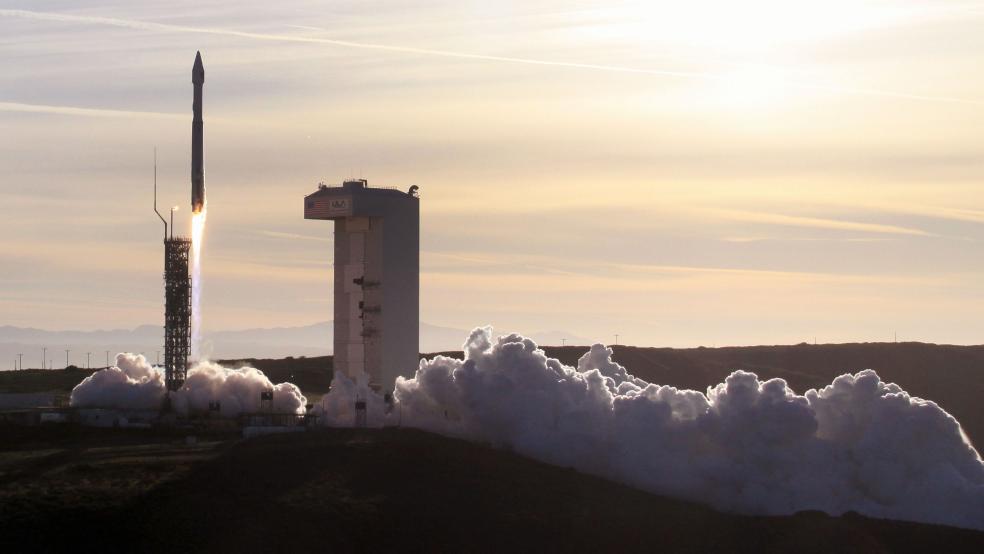Call it Space Race 2.0. More than 50 years after the U.S. and Russia began a contest to reach the moon, a new sort of space race is underway. Now it's about one private-sector competitor beating another to take full advantage of satellite capabilities — and to a bigger bottom line.
Google, for example, announced last week its intention to buy Skybox Imaging for $500 million in cash. Skybox makes satellites, and sells satellite imagery and analytic solutions. The Silicon Valley startup has been around for five years and currently has one satellite in orbit. In the statement announcing the deal, Google said: "Skybox’s satellites will help keep Google Maps accurate with up-to-date imagery," as well as "help improve Internet access."
Christopher Mims at The Wall Street Journal explained what that bland jargon really means: Google is buying Skybox for the incredible data it can collect by imaging the Earth — all of it, every day: “Within a couple of years, when you want to know whether you left your porch light on or if your teenager borrowed the car you forbade her to drive, you might check Google Maps.”
On the same day that Google announced its deal, news broke that venerable space systems and defense department contractor Lockheed Martin was launching a fight over U.S. satellite standards, as the Financial Times put it. The head of Lockheed Martin's space systems division, Rick Ambrose, was quoted as saying: “We will want all competitors to meet the mission assurance standards of the U.S. government.”
The "competitors" Ambrose was referring to is actually just one competitor: Elon Musk's SpaceX. At the end of April, SpaceX filed a "bid protest" with the United States Court of Federal Claims to challenge the exclusive deal United Launch Alliance — a joint Lockheed Martin/Boeing venture — has with the defense department to launch military satellites. In the press release announcing the court challenge, the company said: "SpaceX is not seeking to be awarded contracts for these launches. We are simply seeking the right to compete." Ambrose is alleging SpaceX is asking for leniency in launch standards.
As that battle over satellite launches heats up, satellite technology is also advancing. Tiny satellites called "nanosats" are already looking like the next big thing to change space business. Since last November, 94 nanosats have been launched, according to The Economist, most of which meet a build standard called CubeSat. CubeSat satellites are anywhere from 4 to 24 cubic inches in size, and 3 to 18 pounds in weight.
In some cases nanosats are no bigger than a postage stamp, yet have capabilities far beyond those of Sputnik, the world's first artificial satellite, which was launched into Earth orbit by the Russians in 1957.
All together, those developments in satellite technology are bound to bring big changes to the science and technology we use down here on Earth.
Top Reads from The Fiscal Times:
- 12 Weird Uses for Drones
- Why Vietnam Will Be the Next Nuclear State
- 9 Astonishing Crowdfunding Success Stories





